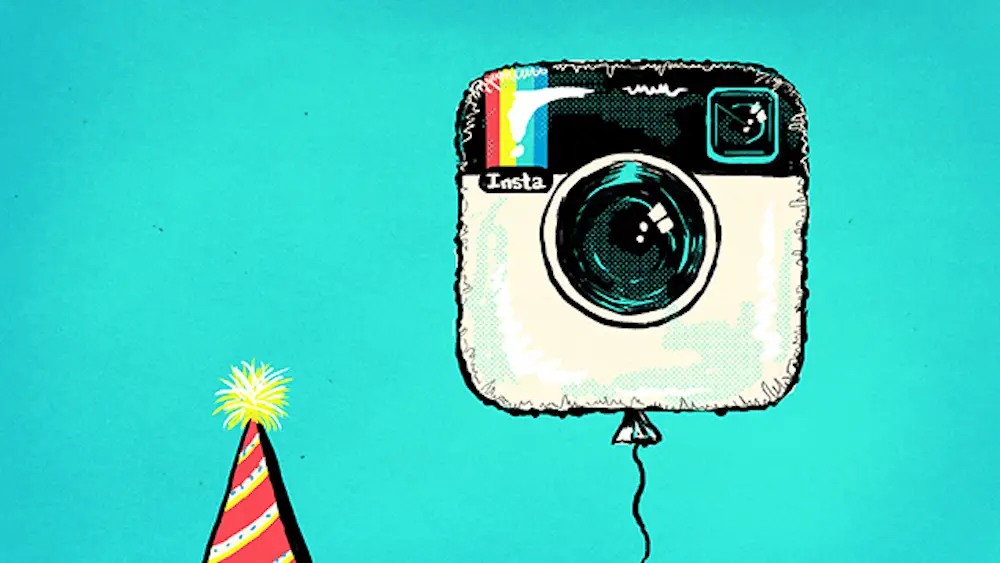In a 2016 episode of Comedy Central’s “The Half Hour,” comedian Cy Amundson holds a cynically amusing mirror to a widespread public affliction: social media selfishness. Amundson recounts a day spent scrolling through Facebook, when he suddenly came across an effusive “Happy Birthday” message that one of his friends posted for his son’s birthday.
“Happy birthday to the most amazing, unique, funny and creative six-year-old son a man could ever ask for. Daddy loves you so much. Happy birthday, Timmy,” the message read. Amundson, in his characteristic tongue-in-cheek style, asked his friend in the comments section why he did not tag his son in the post. The friend explained that Timmy is six, and therefore doesn’t have a Facebook, to which Amundson responded, “Yeah, exactly.”
The comedian’s stand-up, though uproarious and lighthearted, admonishes the nonsensical conduct of social media users and forced me to look at my own social media posts and feeds with a more jaundiced eye.
It may be simple to pick out more overtly egocentric social media content bikini photoshoots on the beach, luxurious vacation pictures or shameless selfies — but even seemingly selfless posts can carry ulterior motives.
“Birthday Instas” and even shared articles on Facebook, Twitter and various other platforms represent a distressing culture of superficially “celebrating” others and “spreading the word” about important news stories, while actually striving to improve one’s own projected image.
Yes, social media possess tremendous influence in connecting millions of people and disseminating crucial information, but all too often these platforms become altars to inflated egos; highlight reels that attempt to depict users as idealized versions of themselves as politically active and righteous citizens, gracious daughters and sons, compassionate friends, loving pet owners, world travelers and culinary connoisseurs.
Needless to say, this kind of immaculate facade requires meticulous upkeep. High resolution photos and carefully crafted captions are employed to construct profiles that are color-coordinated and aesthetically appealing.
When to post, how much to post and how many likes a post receives inevitably become understood reflections of not only the users’ content, but the users themselves. Likes and retweets can even trigger dopamine highs. No wonder these platforms have become breeding grounds for self-worship and promised lands for users desperately seeking reinforcement.
Even “altruistic” posts that shine lights on others speak to sycophantic tendencies, and yet I post “Birthday Instas” with remarkable frequency. In hefty captions, I delve into sensitive tributes to my closest confidantes with all the ardor of a Shakespearean sonnet. But after listening to Amundson, I realized how the hilarity of his bit truly reflects the absurdity of this trend.
What I honestly feel is a sincere and unselfish testimony could easily be interpreted as me saying, “Look, world: I have friends! And I love them! And they love me!” Maybe even in the deepest depths of my psyche, this is what I really mean to say.
Nothing paints a better picture of this self-indulgence than Ryan Reynold’s — albeit facetious — Instagram post for his wife Blake Lively’s birthday, in which almost her entire body is cropped out.
https://www.instagram.com/p/BYPd9jJjoIV/?taken-by=vancityreynolds
While this was, of course, done in jest, it begs the question: Could this be an unintended metaphor for what users do on social media all the time — attempting to attract more attention to themselves than the person or thing they seem to be exalting?
Take, for example, posts on social media celebrating a couple’s anniversary. Paragraphs of text fill users’ feeds recounting inside jokes and memories that really only the couple understands.
It is unlikely that followers wait with bated breath to find out just how much this couple loves each other. Do they love each other to the moon and back? Did their worlds stop moving when they first met? Do they believe the stars aligned to bring them together?
The harsh truth is: No one cares. No one, maybe, besides the other person tagged in the picture. So then why not just tell them to their face, or at least in a private message?
The answer is clear: to broadcast one’s own love, happiness and chimerical life to followers, with the expectation that they will respond advantageously, be that with a like, comment or congratulatory message.
Why else would a mother post about how her blessed cherub of a child made the honor roll (hooray!)? Obviously, she awaits an influx of messages praising her baby, and by extension her own motherly prowess.
Even worse, parents who post pictures of their sick children so desperately require some sort twisted validation that they would humiliate their “little darlings” for all their followers to see. It’s not exactly Munchausen by proxy, but it comes from the same depraved vein.
Something as harmless as sharing an article evinces selfish desires. An article in The Federalist compellingly contended that “social sharing of information is often not actually about sharing information. It’s about the sharer letting everyone know that they are knowledgeable or right-thinking or caring.”
An article in Entrepreneur held a similar stance. “Liking this, that and the other thing on Facebook gives the impression – to you and to others – that you’re an attentive, engaged individual. You’re a good person who openly displays empathy toward people in your friend circle, deepening relationships with every like. At least it seems that way in your activity log.”
Within the confines of social media exists a powerful echo chamber, continually feeding into itself and ensnaring more and more users in its self-satisfied web. Strip away the illusion put forth in these social worlds and the harrowing reality resonates more deeply.
“Fifteen years ago, if you would have wanted that same, perverse reinforcement from me, you know the weird behavior you had to go through to get it?” Amundson quipped. “You’d have literally had to call me on my telephone. ‘Hey, Cy! It’s my son Tim’s sixth birthday today. So I just wanted to say happy birthday, Tim. You light up every room you walk into. My days will never be dark now due to your presence.’”
The preposterousness of this scenario is not lost on me, nor I’m sure on any social media user. Yet social media culture dubs these bizarre actions normal and even expected.
All this cynicism leads to a sobering concern: Is there any ethical way to use social media? The very foundation of social media platforms may be rooted in vainglory, but with a conscious effort users can strive to alter their mindsets and examine their intentions.
At the end of March, my sister celebrated her birthday. In mulling over countless memories and attempting to craft a heartfelt, detailed homage, I eventually decided on the following caption: “You don’t need a caption to tell you how much I love you. You already know.”
Somewhere between purely surface-level material and extravagant self-assurance there lies a happy medium. Social media culture’s doomsday has yet to dawn, and Instagram and its sister social platforms maintain immense power as outlets for self-expression.
The more accurately and candidly users’ social media presences mirror their unique personas, the more meaningful this social conversation becomes.
Self-expression need not always be selfish. Share joys and share pains, but with the true belief that this sharing will actually interest or benefit your audience. Be honest. Be meaningful. Be intentional.
Above all, remember a poignant conversation, a congratulations or even a “Happy Birthday” wish shared between two people can be more impactful than an online endorsement for all the world to see.

















